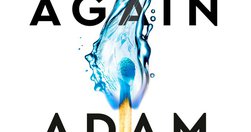Overview: Communication Strategy
Communications appears complex. But a good communication strategy shouldn't be.
4-steps, 4 tables
I generally boil it all down to four simple, interrelated tables, defining:
- Who you’re trying to reach: your audiences, including their needs and information preferences, and what your goals are for them
- Why they should pay attention to you: starting with your Unique Value Proposition, craft a Global Elevator Pitch, and from that derive Editorial Messaging for each audience, reflecting their needs (above)
- How you will get those messages to those audiences: an integrated, mutually supportive communications portfolio
- When you will monitor and optimise those activities: key metrics, analyses and optimisation processes.
Process
A Word document entitled "communication strategy" gathering dust on a shelf is no use to anybody. The only way your strategy will have an impact is if:
- you engage your colleagues during its development - after all, they have some of the answers you'll need;
- and your ensure they understand the strategy once it's finalised - after all, their cooperation will be critical to its success.
There are many ways to go about this. My favourite option is to spend a few hours a week interviewing diverse members of your comms team and holding one or two workshops with them and others. That way we'll develop buy-in together along the way, and I'll be able to mentor your staff so that they can better implement the strategy.
But if that's not possible right now, I boiled my process down into an online course: 4-Step Communication Strategy Framework: demystify communications strategy
Relevant resources

A YANSS interview with Adam Grant, author of Think Again: The Power of Knowing What you Don’t Know. Generally an "extensive exploration of how to rethink your own thinking", including his WorkLife podcast interview of Margaret Atwood on procrastination.(When annotating a podcast I really like a transcript, but there was none for this epi…